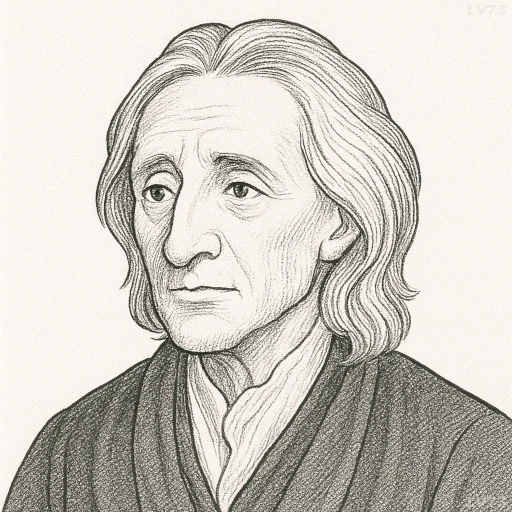“Where all is but dream, reasoning and arguments are of no use, truth and knowledge nothing.”

- August 29, 1632 – October 28, 1704
- Born in England (UK)
- Philosopher and political thinker
table of contents
Quote
“Where all is but dream, reasoning and arguments are of no use, truth and knowledge nothing.”
Explanation
In this quote, John Locke presents the idea that when reality is uncertain or deceptive—when it is akin to a dream—the tools of reasoning and argumentation become ineffective. Locke suggests that if we are in a state where the fundamental nature of reality is unclear or unreliable, no matter how logical or well-supported our reasoning may be, it cannot lead us to the truth or knowledge. The metaphor of a dream emphasizes that when our perceptions or understanding of the world are distorted or illusory, intellectual processes like reasoning are futile. This highlights the importance of a reliable, grounded understanding of reality in making sense of the world and acquiring true knowledge.
Locke’s point aligns with his broader empiricist philosophy, which holds that knowledge is derived from experience and sensation. If the world is experienced as a dream—unreliable, subjective, or illusory—then our ability to reason about it or gather knowledge becomes compromised. Locke’s emphasis on empirical observation suggests that for knowledge to be meaningful, it must be grounded in shared, reliable experiences of the world, not just theoretical reasoning or abstract thought. The idea of dream-like states challenges the foundation of understanding, reminding us that when we cannot trust our experiences, our reasoning cannot provide us with true insight.
In modern times, Locke’s observation is still relevant, particularly in areas like epistemology and cognitive science. The concept of perception being fallible or distorted continues to shape our understanding of how we gain knowledge. For instance, in the context of artificial intelligence or virtual reality, where experiences may be constructed or altered, Locke’s point about the limits of reasoning in an uncertain or dream-like state holds significance. It also applies to modern issues in media literacy, where misinformation or subjective experiences can cloud our ability to reason effectively. Locke’s insight serves as a reminder that in order to seek true knowledge, we must first have a trustworthy understanding of reality, without which reason and logic alone cannot lead to meaningful conclusions.
Would you like to share your impressions or related stories about this quote in the comments section?

